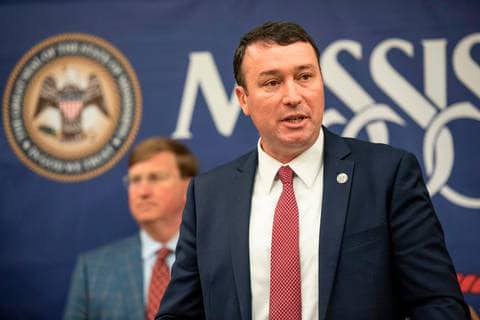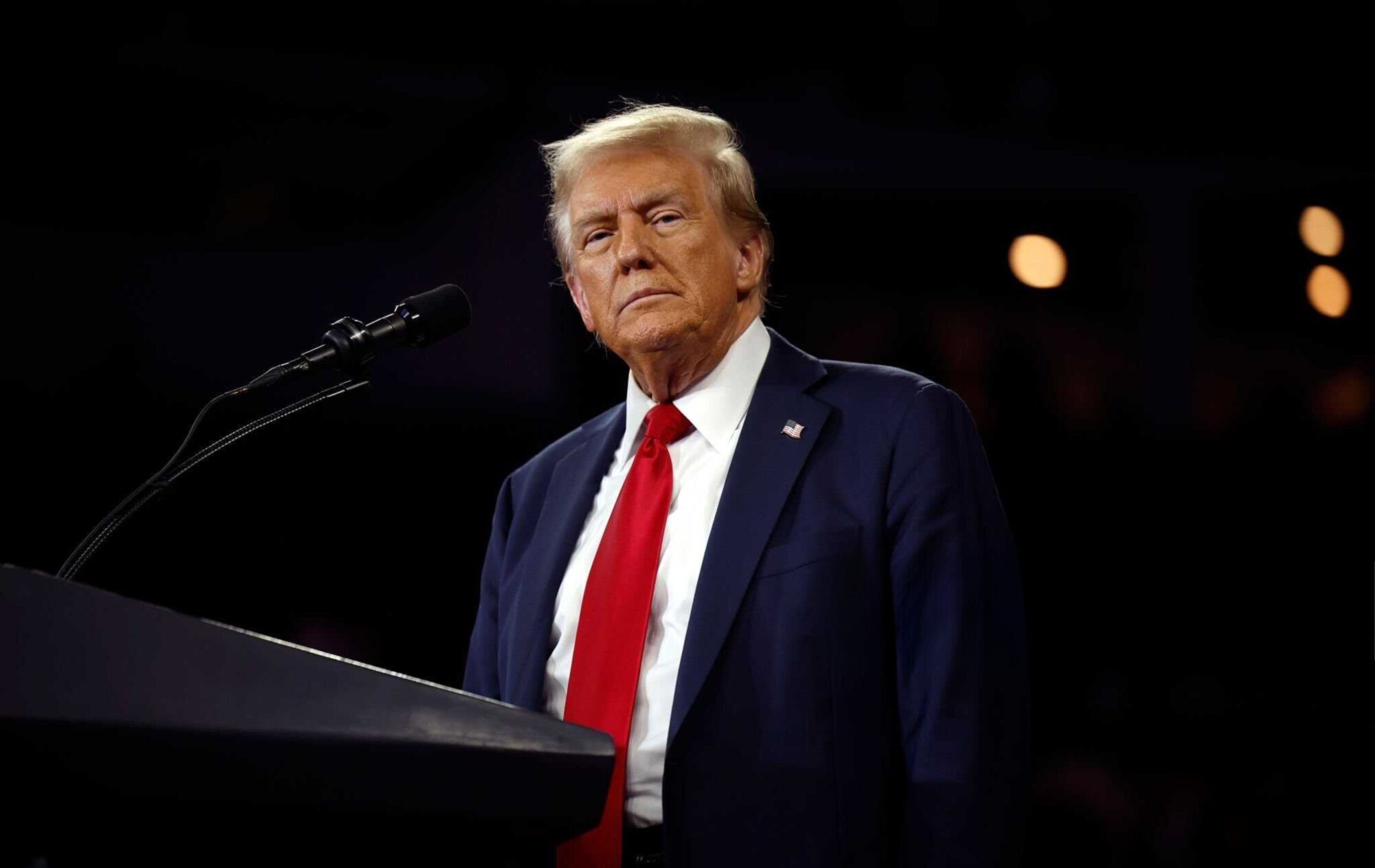
FILE - Dr. J. Robert Oppenheimer, creator of the atom bomb, is shown at his study at the Institute for Advanced Study, in Princeton, N.J., Dec. 15, 1957. A new film on Oppenheimer's life and his role in the development of the atomic bomb as part of the Manhattan Project during World War II opens in theaters on Friday, July 21, 2023. (AP Photo/John Rooney, File)
The story of Oppenheimer and the Manhattan Project is not merely a celebration of American ingenuity. It’s a story that altered the course of human history – a history we now inherit.
“Now I am become Death, the destroyer of worlds.”
(Following is a text version of the July 19, 2023, episode of the RealClearDefense “Hot Wash” podcast with Addison Graham and John Sorenson.)
This weekend, thousands of Americans will go to movie theaters across the country to watch Christopher Nolan’s newest film, “Oppenheimer.” A star-studded cast of talented actors, including Cillian Murphy, Florence Pugh, Matt Damon, and Emily Blunt, will bring to the big screen the life of Robert Oppenheimer, the brilliant theoretical physicist often called “the father of the atomic bomb.”
The story of Oppenheimer and the Manhattan Project is not merely a celebration of American ingenuity. It’s a story that altered the course of human history – a history we now inherit.
Fascinated by Oppenheimer’s story, Christopher Nolan sat down in the spring of 2021 to read “American Prometheus: The Triumph and Tragedy of J. Robert Oppenheimer.” It’s a Pulitzer Prize-winning biography by Kai Bird and Martin Sherwin on the life and career of a man who was treated both as an American hero and later as a traitor.
After finishing the lengthy biography, Nolan spent the summer writing a script based on the book. Co-author Kai Bird has read the script and predicts the movie will be “regarded as unusually historically accurate for a Hollywood film.” For that reason, Nolan says the “story doesn’t leave you with anything too comfortable.”
“But that’s the story we’re telling,” he adds. “It leaves you with resonant and troubling questions.”
If you see the movie this weekend and leave the theater feeling overly troubled, maybe you can slip into an adjacent theater and catch a showing of “Barbie,” a more light-hearted movie that – to Nolan’s apparent irritation – premieres the same weekend as “Oppenheimer.”
But with Russia’s attack on Ukraine posing one of the most daunting threats of nuclear warfare since the Cold War, it may be time for us to contemplate the resonant, troubling questions Nolan raises.
What, if anything, justifies the mass killing of non-combatants? Who shoulders the blame for such carnage? Can nuclear war really be won?
Perhaps we can look for answers through the lens of a man who faced all of those questions and more with the uncertainty of the future hanging over him.
As an enabler of great destruction, Robert Oppenheimer grappled with the many complex political and moral issues that we grapple with in our time. It was a hellish experience for him, one that later caused him to recall a passage of Hindu scripture: “Now I am become Death, the destroyer of worlds.”
What led Oppenheimer to that moment?
On April 12, 1945, while sitting for a portrait, President Franklin Delano Roosevelt collapsed and died of a cerebral hemorrhage. FDR had been a fatherlike figure to a nation that had gone through the Great Depression only to be forced into a two-front war in Europe and the Pacific.
Harry Truman, Roosevelt’s little-known vice president, was sworn in as president later that day. Shortly thereafter, Truman was briefed on a top-secret program that would largely come to define his presidency: the Manhattan Project.
Though Truman had been kept out of the loop as vice president, America’s secret efforts to create a nuclear weapon had begun years before. On August 2, 1939, Albert Einstein signed a letter addressed to FDR, warning that the Nazis might be developing nuclear weapons. Einstein urged the United States to stockpile uranium ore and begin work on its own atomic weapons. As a respected physicist, Robert Oppenheimer was recruited away from the University of California, Berkeley, to work on the Manhattan Project in 1942. By 1943, he was appointed as director of the Los Alamos Laboratory in New Mexico, where the weapons were to be developed. From 200 miles away, he witnessed the first detonation at a test site on the New Mexico plains on July 16, 1945.
The government’s code name for the atomic test was “Trinity.” But the Spanish name for that place was more fitting: Jornada del Muerto, or “Dead Man’s Route.” Shortly after the test, as Oppenheimer was walking with his secretary, Anne Wilson, she heard him mutter under his breath, “Those poor little people! Those poor little people!”
And yet that same week, he instructed airmen on the altitude at which the bomb should be dropped to ensure the most destructive and devastating effect. Three weeks later, the bombs known as “Little Man” and “Fat Boy” were dropped on Hiroshima and Nagasaki, Japan. Many “poor little people” were vaporized.
Japan surrendered. The war was finally over. Oppenheimer became one of the most famous scientists in the world and was largely viewed as an American hero. But he did not feel like a hero. He plunged into a deep depression after the detonation of the bombs as he thought of the destructive powers he had helped unleash.
Three months after the war’s end, Oppenheimer visited Harry Truman at the White House. “Mr. President, I feel I have blood on my hands,” he said.
Truman, according to his own account, replied, “The blood is on my hands – I ordered using the damn thing – let me worry about that.”
Truman later instructed acting Secretary of State Dean Acheson, “I don’t want to see that son of a bitch in this office ever again. He didn’t set that bomb off. I did. This kind of sniveling makes me sick.” At another point, Truman reportedly referred to Oppenheimer as that “cry-baby scientist.”
Truman and Oppenheimer clearly saw the atomic bomb from two distinct points of view. Oppenheimer was worried about the possibility of nuclear weapons ending humanity. But Truman was worried, first and foremost, about ending World War II, the deadliest conflict in human history. Nearly 20 years later, when Truman was asked if he viewed the atomic bomb as a blessing or a curse to society, his thinking on the matter was resolute and unchanging.
“Well I thought it was a blessing,” Truman said. “I thought it could be used and made a blessing. I never worried about its being a curse. I wanted a weapon that could win the war, and it did. That’s what I was interested in.”
The authors of “American Prometheus” documented another scene from the White House exchange between Oppenheimer and Truman. Oppenheimer argued for putting international controls over nuclear weapons. Truman asked, “When do you think the Russians will be able to get such a weapon?” Oppenheimer said likely in the near future but that it was hard to know. Truman interrupted and said, “Well, I know. Never!”
Oppenheimer seemed to grasp what many of his fellow patriots, including President Truman, did not understand: The tremendous power of the atom could not be contained in that way.
The Soviets successfully tested their first nuclear device on August 29, 1949, and the Cold War took on a menacing new dimension.
Oppenheimer was appointed to head the Atomic Energy Commission, a civilian agency in control of nuclear research and the development of nuclear weapons. With his position, he advocated for international control of nuclear weapons to avoid an arms race. His refusal to work on the hydrogen bomb, which would be 1,000 times stronger than the atomic bomb, called his patriotism into question among hardliners, and he became one of the early targets of McCarthyism.
Oppenheimer was accused of being a Communist spy, and by December 1953, President Dwight Eisenhower ordered that a “blank wall be placed between Dr. Oppenheimer and any secret data.” Stripped of his security clearance, Oppenheimer became a pariah. He was humiliated.
Oppenheimer’s political affiliations were known before his involvement with the Manhattan Project, and nobody saw the need to revoke his security clearance. But Red Scare politics spared no one. Politicians and bureaucrats dug up every Communist tie Oppenheimer ever had.
As a young man, Oppenheimer was neither strictly a science nerd nor a political ideologue. He read French literature and Ernest Hemingway, not Locke or Marx. He did not become more involved politically until 1937, when he met Jean Tatlock – a Michigan-born, Stanford-trained psychiatrist – who was an active member of the Communist Party. Tatlock would never agree to marry him, but Oppenheimer’s eventual wife, Kitty, was also a member of the Communist Party. Though Oppenheimer was not a card-carrying Communist himself, he certainly supported the party and even donated as much as $400 to the cause.
But the American Communist Party of the 1930s was not the same as the party of the 1950s. The issues Oppenheimer was known to have cared about were desegregating the swimming pool in Berkeley, California, and improving the working conditions of farm workers. His most passionate cause, one he shared with many contemporary American liberals, was opposing the fascists led by Hitler’s ally Francisco Franco during Spain’s civil war.
Oppenheimer’s biographers are adamant that he was not a Stalin sympathizer or a Soviet spy –but, instead, a motivated American patriot.
Once stripped of his security clearance, Oppenheimer never got it back. He died in 1967. But in 2022, Secretary of Energy Jennifer Granholm nullified the 1954 decision to revoke Oppenheimer’s security clearance. In a statement, Granholm said, “More evidence has come to light of the bias and unfairness of the process that Dr. Oppenheimer was subjected to while the evidence of his loyalty and love of country have only been further affirmed.” He made “profound contributions to our national defense,” she wrote.
It is difficult to know what Oppenheimer would think of his contribution to our nation’s defense if he could see the world today. He feared he helped create a monster that he warned would cause the world to one day curse the names “Los Alamos” and “Hiroshima.”
The fact that he knew the Manhattan Project would have succeeded without him was little solace to a physicist who felt he had blood on his hands. In many ways, Robert Oppenheimer was a casualty of his own weapon.
Uncertainty surrounding the world’s future still looms, and the existence of nuclear weapons only adds to the question marks. But Oppenheimer would likely concur that the world would be far more dangerous if America did not possess nuclear weapons, allowing dictators to intimidate other nations without the threat of American retaliation. Oppenheimer hoped that the existence of nuclear weapons could help to ensure lasting peace in the world. But he knew that the weapon he helped create was also capable of destroying civilization. To stave off such destruction is an ongoing struggle – a struggle that each generation must take up.
After all, as is often said, there are no winners in war. This is especially true in nuclear war. There are no victors. Just “poor little people.”
#####







